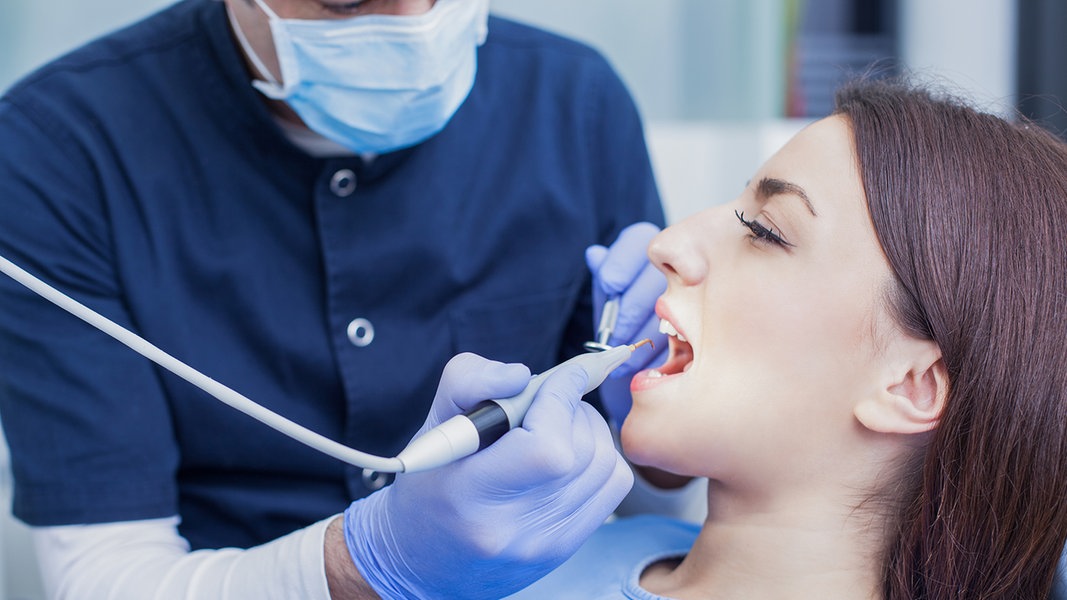The Truth About Professional Teeth Cleaning
แนวคิดหลัก
The author argues that professional teeth cleaning is essential for oral health, not just for cosmetic reasons. Despite differing opinions on its effectiveness, the main thesis is that regular professional teeth cleaning can prevent serious dental issues.
บทคัดย่อ
Professional teeth cleaning, known as PZR, offers both cosmetic benefits and crucial removal of harmful biofilm to prevent cavities and gum disease. While dental associations recommend it for maintaining oral health, scientific research questions its overall effectiveness. The procedure involves removing hard and soft deposits from teeth, polishing them, and providing guidance on proper oral hygiene practices.
Customize Summary
Rewrite with AI
Generate Citations
Translate Source
To Another Language
Generate MindMap
from source content
Visit Source
www.ndr.de
Professionelle Zahnreinigung: Was bringt das wirklich?
สถิติ
Zähne und Zahnfleisch mit der Prophylaxe-Behandlung gesünder bleiben.
Eine routinemäßige Zahnsteinentfernung hat keine bis geringe Auswirkungen auf Zahnfleischentzündungen.
Die professionelle Zahnreinigung dauert meist zwischen 45 und 60 Minuten.
Die Kosten für die PZR liegen in der Regel zwischen 50-150 Euro.
คำพูด
"Zähne und Zahnfleisch mit der Prophylaxe-Behandlung gesünder bleiben."
"Die professionelle Zahnreinigung soll neben der Mundhygiene zu Hause helfen, Erkrankungen zu verhindern."
"Eine PZR nur in Verbindung mit einem fachlichen Aufklärungsgespräch bringt einen langfristigen Nutzen."
ข้อมูลเชิงลึกที่สำคัญจาก
by ที่ www.ndr.de 02-21-2024
https://www.ndr.de/ratgeber/gesundheit/Professionelle-Zahnreinigung-Was-bringt-das-wirklich,zaehneputzen108.html?utm_source=linnk.ai
สอบถามเพิ่มเติม
How do cultural differences impact the perception of professional teeth cleaning?
Cultural differences can significantly impact the perception of professional teeth cleaning. In some cultures, oral health and hygiene may not be given as much importance, leading to a lower awareness of the benefits of regular dental cleanings. Additionally, cultural beliefs around healthcare practices and preventive measures can influence whether individuals prioritize professional teeth cleanings. For example, in some cultures, traditional remedies or practices may be preferred over modern dental procedures. Moreover, access to dental care and affordability of treatments can vary across different cultures, affecting how individuals perceive the necessity and value of professional teeth cleaning.
Is there a risk of over-reliance on professional cleanings rather than personal oral care?
Yes, there is a potential risk of over-reliance on professional cleanings at the expense of personal oral care. While professional teeth cleanings are essential for removing stubborn plaque and tartar buildup that regular brushing may not address effectively, they should complement rather than replace daily oral hygiene practices. Over-relying on professional cleanings without maintaining good habits like proper brushing technique, flossing, and using mouthwash can lead to an increased risk of dental issues such as cavities and gum disease. It's crucial for individuals to strike a balance between routine personal oral care at home and periodic visits for professional cleanings.
How can advancements in technology improve the effectiveness of professional teeth cleaning procedures?
Advancements in technology have revolutionized the field of dentistry and greatly enhanced the effectiveness of professional teeth cleaning procedures. Modern tools such as ultrasonic scalers use high-frequency vibrations to break down plaque and calculus more efficiently than traditional hand instruments, resulting in thorough cleaning with reduced discomfort for patients. Additionally, innovations like air polishing devices utilize a combination of water pressure and abrasive particles to remove surface stains effectively while being gentle on enamel.
Furthermore, digital imaging technologies allow dentists to identify hidden areas where bacteria may accumulate, enabling targeted treatment during cleanings. Laser therapy has also emerged as a valuable tool for disinfecting periodontal pockets and promoting tissue regeneration post-cleaning. These technological advancements not only improve precision during procedures but also enhance patient comfort by minimizing invasive techniques often associated with older methods.
0
